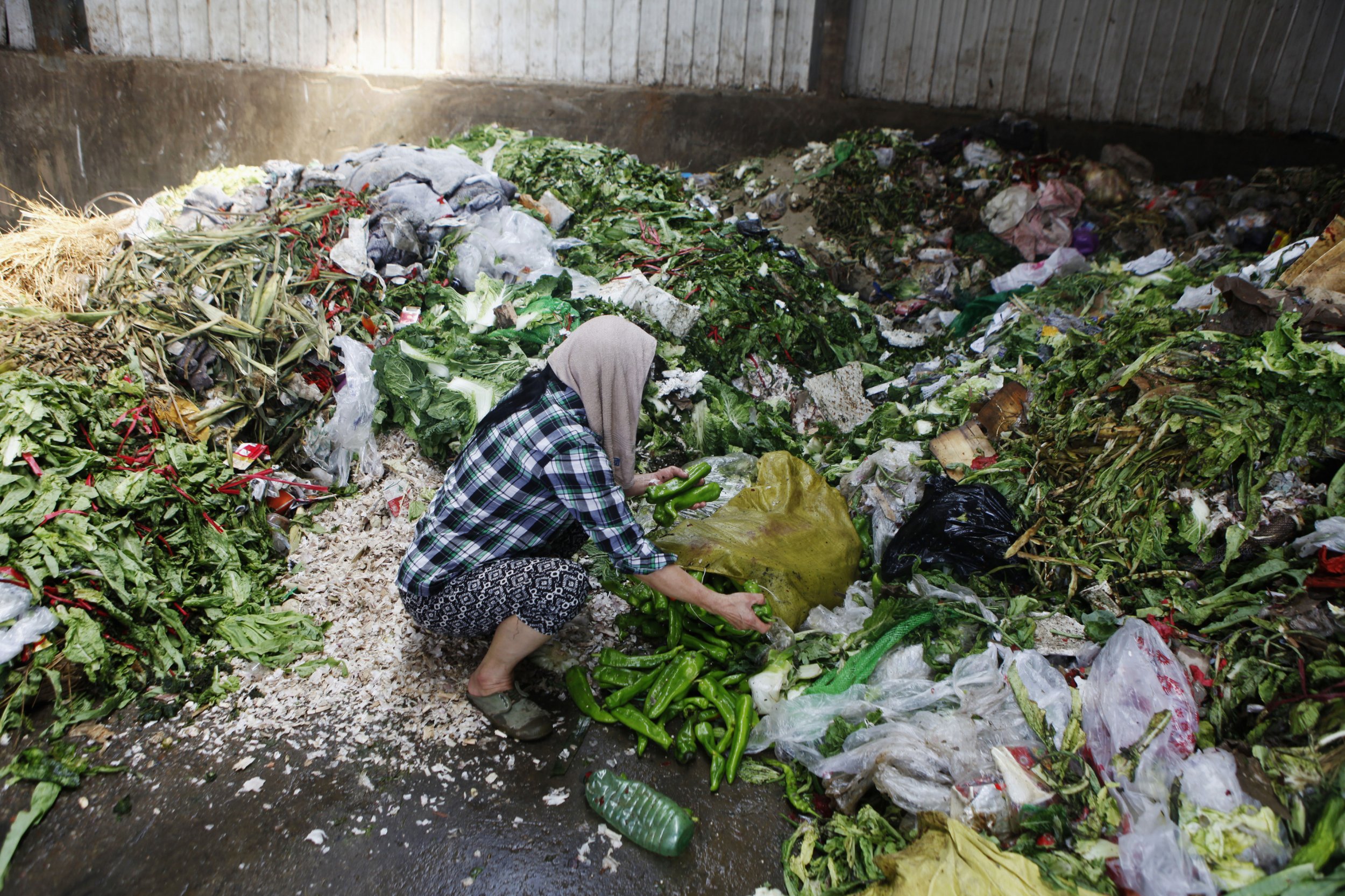
Worldwide, 1.3 billion tons of food per year is wasted or lost. This amounts to one-third of the world's food, and it is enough to feed 2 billion people. Yet despite this waste, 795 million people are going hungry around the world.
But food waste is also linked to climate change, because when food is lost, the potential to feed more people isn't all that is wasted. Land, fertilizers, water, labor and the energy fuels used to make that food are also wasted. If food waste were its own country, for example, it would be the third-largest emitter of greenhouse gases. All those emissions from farmwork are contributing to global warming, but the food associated with these emissions is feeding no one.
A new study published Thursday in the journal Environmental Science & Technology set out to quantify just how much the food we throw away translates into a warming climate.
Researchers found that food consumption per person has more or less stayed the same over the past five decades but food availability has climbed higher and higher, while still not reaching people who are chronically hungry. And all of that extra agriculture is helping drive climate change. In 2010, the food industry as a whole produced more than 20 percent of all greenhouse gas emissions.
As the margin between how much food we produce and how much we actually eat grows larger, so does the contribution to climate change. By 2050, according to researchers at the Potsdam Institute for Climate Impact Research, food waste will amount to between 1.9 and 2.5 gigatons of CO2 per year from the agriculture sector, compared with the 0.5 gigatons of CO2 attributable to food waste now. By then, 14 percent of total agriculture emissions will come from making food that will feed no one.
"Avoiding food loss and waste would therefore avoid unnecessary greenhouse-gas emissions and help mitigate climate change," co-author Prajal Pradhan said in a statement. "Changing individual behavior [to avoid food waste] could be one key towards mitigating the climate crisis."
For some in the international development community, that's becoming a major focus. "We have enough production in the world to feed everybody. Hunger is the result of how our society is organized," Barbara Ekwall, senior liaison officer to the Food and Agriculture Organization of the United Nations, said at a meeting of environmental journalists in 2014. But thankfully, she added, "our human behavior can be changed. That is a huge source of optimism."
France, for example, is already taking steps to change the flow of food. This year, it made it illegal for supermarkets to throw out food that is still edible. Now markets must donate excess food to food banks.